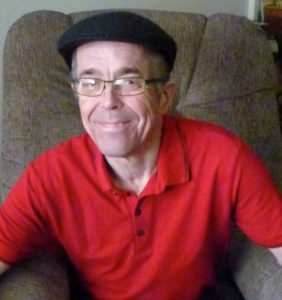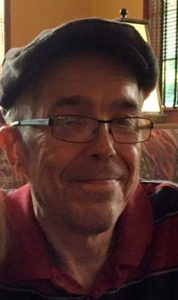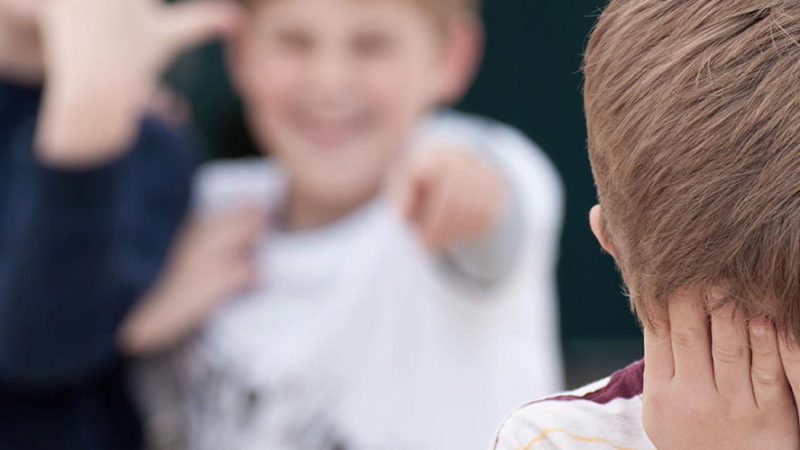
One might think that kids who are bullied grow up and get over it, but my cousin says he remembers every shove, every taunt, every tease like it happened last week.
Eric (57) and I sat in the Jantzen Beach Bar and Grill overlooking the Columbia River and eating lunch. The wait staff bustled about the tables around us as my cousin filled me in on what it was like for him to attend school in the 60s and 70s. Back then, kids with developmental delays were not mainstreamed among the rest of their peers.
“We were isolated,” Eric said, explaining that he felt like there was a huge stigma on the students enrolled in special education classes. “Kids used the “R” word and they made fun of the way I talked.”
“You talk fine,” I said.
Eric tilted his head. “Really, Linda. I know that not everyone understands me.” He pushed his eyeglasses toward his brow. He wasn’t about to let me off the hook.
Around five years of age, Eric stopped breathing. A doctor performed an emergency tracheotomy, causing damage to his vocal chords. I was born six months before him, so we grew up together. After his vocal chords were damaged, I often had to ask his sisters to interpret what Eric was saying. As grade schoolers, I could see the frustration in my cousin’s face. He tried so hard to be heard. He knew what he was trying to say, but articulating clearly enough for those outside his immediate family to comprehend—well, it took years of speech therapy for him to be understood by others. And he still struggles. Even though I listen carefully, I occasionally have to ask him to repeat something.
“Kids mimicked me all through school,” Eric said. “Over and over. So I shut down. I quit talking.” He took a sip of his virgin Pina Colada. “Sometimes I think I make people uncomfortable. I think people think I’m stupid because I have trouble talking.”
My cousin is definitely not stupid. When he was sixteen, he took a driver’s education course. The instructor told him it was a waste of time because he would never pass either the driving or written tests. But Eric proved that instructor wrong.
“I passed the test the first time and came home with my driver’s license.” And Eric drove for years—until his sight failed him to the point he felt it was safer to start taking the bus.
But city buses didn’t turn out to necessarily be a safe environment either. One driver ignored Eric when he pulled the cord indicating he needed to get off at the next stop; the guy drove right on past. Eric shouted, telling the driver that he’d missed his stop. The driver traveled several more blocks before pulling the bus over to the side of the road.
“I don’t think he would have stopped even then, but someone was waiting to catch the bus,” Eric said, shaking his head in disgust. “He never apologized. He ignored me. Some people are just mean. This guy was an adult. He should’ve known better.”
“Did you ever tell anyone?” I asked.
“No,” Eric said, shaking his head some more. “I thought if I told, the bullying would get worse.” He told me he doesn’t remember telling his parents, but if he did, he’s certain he begged them to not take any action on his behalf. “I didn’t want to be a bigger target.” Then sounding somewhat skeptical, Eric added, “Maybe things are better now for the younger kids.”
My cousin bit into a french fry and I picked at my salad while we swapped stories. I told Eric that my daughter (now 35) has been teased because of her shaking. She has essential tremors that cause her hands, her arms, and her head to tremble, as if she’s cold. Some people think she has Parkinson’s, but that isn’t her diagnosis.

“Things have changed some since you were in school, Eric,” I said, reminding him that Lindsey attended school in the 80s and 90s. Our district placed Lindsey (and other kids with special needs) on IEP’s (Individual Education Programs) so teachers could gear schoolwork to each child’s specific level. In Lindsey’s case, the school regularly pulled her out of the classroom for one-on-one instruction. By junior high, the district assigned Lindsey a personal assistant who followed her from classroom to classroom, and in high school, Lindsey was mainstreamed with her peers for several classes, but she attended dedicated special education classes too.
Once when she was in fourth grade though, I remember two girls spitting on her at recess. Unlike Eric, who felt that no one at school cared enough to come to his aid, Lindsey had a hero. Scott von Weller, a popular young athlete, told these girls to leave my daughter alone. When I shared this story with Eric, my cousin looked pleased.
“That’s good. That’s so good,” he said, adding that it only takes one person to stand up for someone else. If one of his classmates had done that for him, Eric said he would’ve been grateful forever. “I’d remember that,” he said, sipping on his drink. “You’ve thanked that young man, haven’t you?” Eric asked with such intensity I had to laugh.
“Yes, Eric, we have,” I said. “Many times. Scott von Weller is still a hero in all our eyes. Especially Lindsey’s.”
“Good,” Eric said. “Very good.”
Lindsey has shared with me that she thinks the kids who were mean to her were that way because they didn’t love themselves. “Nobody deserves to be teased, or made fun of, or picked on,” she said. “And if that happens, you should go and tell a teacher or an adult.”
In the twenty years between Eric and Lindsey’s schooling, there’s been more bully prevention education and so maybe some kids are more apt to tell. Lindsey felt comfortable going to a teacher and asking for help, while Eric did not.
He feels that some people do not like people with handicaps or disabilities. I wondered aloud if maybe these people just feel uncomfortable because they don’t know what to say or how to act.
“That could be true,” Eric said. “But when people are mean to me, I try to blend in. I don’t want to stand out. I just want to disappear.”

I don’t want my cousin (or my daughter for that matter) to feel like they have to disappear. I want kids and adults to quit being unkind to others. I want all individuals to realize how their negative actions and words can affect others.
I asked Eric if he ever wanted to take revenge on those who hurt him but he shook his head. It was a rather silly question because my cousin has the kindest heart. He is concerned about others and is always ready to give a hug or a pat on the back. He has a strong faith and has been a loving husband for thirty-one years (and counting).
“I forgive everyone who was mean to me,” Eric said. “But I can’t erase the bad memories. And they still hurt.”
Bullying can last a lifetime in the psyches of the bullied—so we must stomp out bullying right now. Please.

My first book will be coming out September 26, 2017. If you are interested in learning more about Loving Lindsey: Raising a Daughter with Special Needs, please click here.

